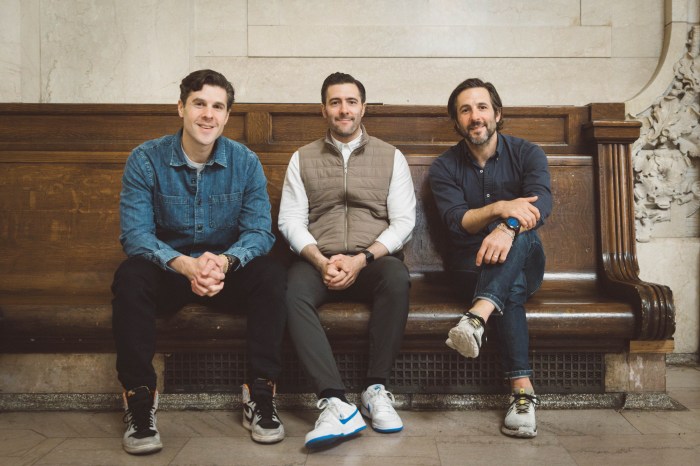
Mayor Bill de Blasio took to a Brooklyn F train Sunday to correct the “fiction” from Gov. Andrew Cuomo’s office, which the mayor claimed was an attempt to obscure responsibility over the MTA’s subway crisis.
“You’ve heard a lot of fiction the last few days, so I’m going to give you some facts,” de Blasio said during a four-stop subway trip from his Park Slope gym to his mayoral campaign headquarters in Downtown Brooklyn. “The state and the MTA are responsible for the operations of the New York City subways. It’s been that way for decades.”
The mayor, in the throes of a tense feud with Cuomo over responsibility for soaring delays and high-profile service failures, appeared reluctant Sunday to pony up additional funds for the beleaguered system.
Despite the misconception that the mayor controls the subways, the MTA is a state agency. Cuomo appoints the agency’s chairman, who oversees a board of 14 voting members who are approved by the governor. The mayor has the power to nominate four of those members, while the governor nominates six.
As Cuomo faces a dip in approval ratings, he and his MTA chairman have attempted to pass the blame to the mayor. The two pointed to the 1953 lease agreement outlining that the MTA is running the subway system while leasing its infrastructure from the city. Therefore the city should take the lead for funding its subways, Cuomo charged.
“It’s the city’s legal obligation to be funding the subway system even though we stepped in on a moral level,” Cuomo said last week.
MTA Chairman Joe Lhota echoed those remarks later that day. The state only helped fund the agency’s first five-year capital plan in 1981 because the city’s finances and its subway system were in shambles, Lhota said. (To support the agency’s current $32 billion capital plan, the state has pledged $8 billion and the city $2.5 billion.)
But now, the city has more than $4 billion in surplus, according to Lhota, and he’d like some of that cash to help improve subway service. He said Thursday the agency will be unveiling its 30-day reorganizational report later this week and will be calling on the mayor and governor to provide additional money for subway projects the report highlights.
“It makes no sense,” said de Blasio, referring to the idea that the city is solely responsible for funding the subways. “I’ve never heard anything like that from Joe Lhota before.”
Sunday’s trip was one of several the mayor has taken in recent weeks after fielding criticism for his avoidance of mass transit and reluctance to use his bully pulpit to champion its improvements.
“It’s important for New Yorkers to know I’m fighting for these changes at the MTA and I’m out there experiencing what they are experiencing,” said the mayor. He criticized the agency for not focusing more money toward its aging signal system, new train cars or more maintenance.
The mayor didn’t directly say he wouldn’t provide new money for the MTA — but he insisted the agency could instead use what the mayor described as billions in unspent capital funds.
“Why are we talking about more money when we know they have money they’re not spending?” de Blasio asked. “There’s lots to be done but the resources are there. It’s about the MTA and the state of New York stepping up, taking responsibility, coming up with a real plan and fixing things.
“It’s as simple as that,” he said.


































